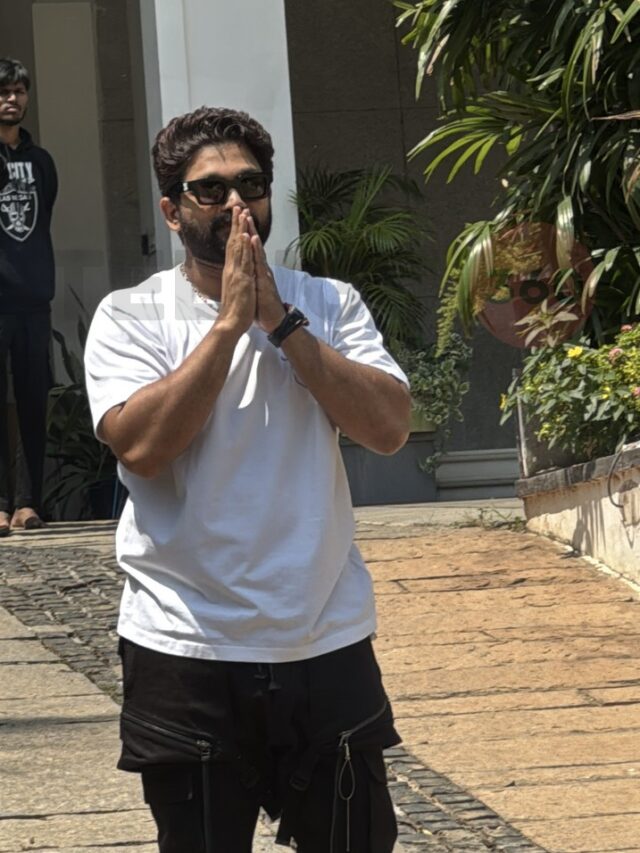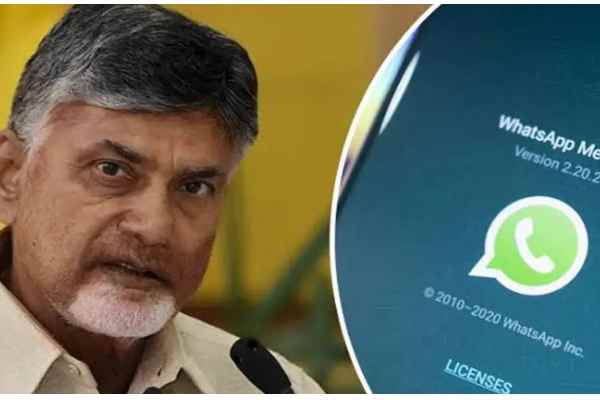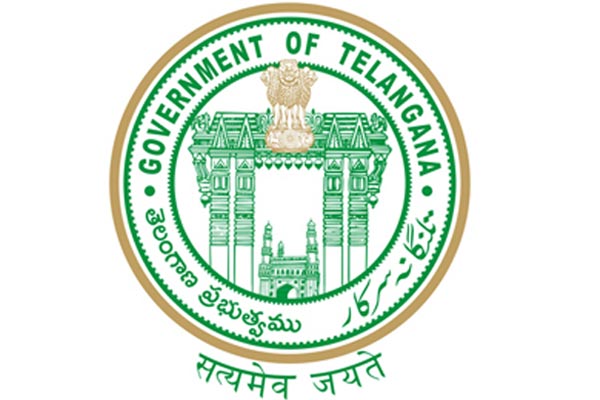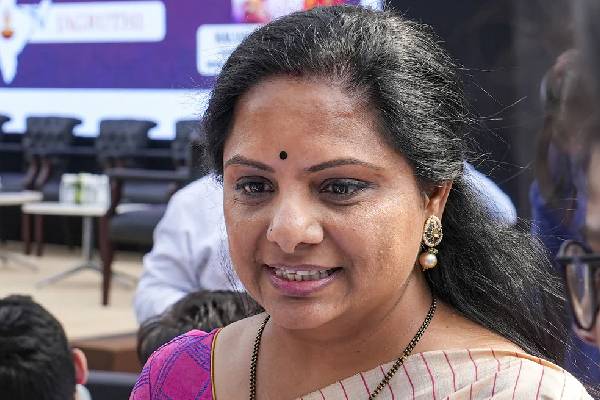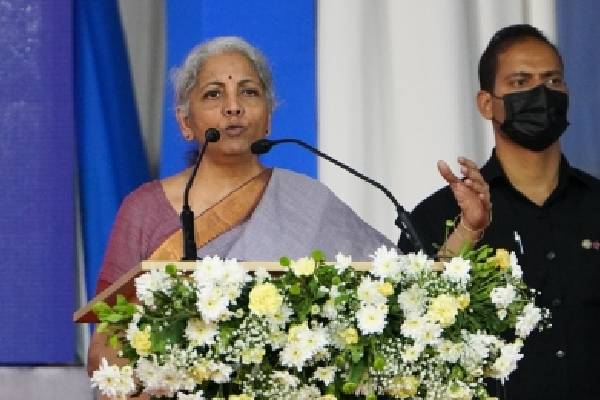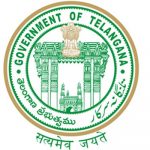Under attack from Telangana Rashtra Samithi (TRS) for publicly pulling up a district Collector in Telangana, Union Finance Minister Nirmala Sitharaman defended herself saying her language was not objectionable or unparliamentary.
She told reporters on Saturday that she did not cross limits of parliamentary conduct while questioning Kamareddy district Collector about the share of the Centre and the state in supply of ration through public distribution system.
During a visit to Birkur village in Kamareddy district on Friday, the central minister expressed her anger at district Collector Jitesh V. Patil as the Prime Minister’s flexis was not displayed at a fair price shop.
Sitharaman was visiting Zaheerabad Lok Sabha constituency as part of BJP’s Lok Sabha Pravas Yojana.
TRS working president K.T. Rama stated that he was appalled by the unruly conduct of the union finance minister with the District Magistrate/Collector of Kamareddy.
Rama Rao complimented Jitesh Patil on his dignified conduct.
“I am not here to judge the conduct of the Collector. As people’s representative I have every business to ask questions. Point out to me if during the conversation there was anything objectionable, unparliamentary or discourteous,” she said.
“As a people’s representative I asked a question. He was unable to give an answer. I went to the extent of saying if you don’t have an answer now, you may come with the one after half-an-hour,” she added.
“You have every right to have that opinion but as a people’s representative I have every business to ask and seek an answer. If my language is objectionable you have every business to comment but I have not crossed limits of parliamentary language,” she said
The central minister, however, termed as cynical the assertion by the TRS leader that the Centre should put up banners at all PDS shops in BJP-ruled states thanking Telangana for its contribution.
“Since our FM is going around lecturing how ‘Modi Sarkar’ is the Giver. Here are the facts and figures. For every Rupee that Telangana contributes to the Nation, we only get back 46 paise! Madam, time to put up a banner: ‘Thanks to Telangana in all BJP states’ PDS shops,” TRS leader KTR tweeted.
She wondered if the argument by the TRS leader can be applied within Telangana.
“Hyderabad contributes 55 per cent of Telangana’s income. All projects in the state will have Hyderabad’s contribution. If you are building a project in Adilabad, can you put the name of Hyderabad MP or tax payers of Hyderabad there,” she asked.
“If every individual and state starts saying I have given this much, give me back that much…. Taxation principle does not work on that ground,” she said
The finance minister termed this behaviour as ‘regressive’ and remarked that this may be good for rhetoric, for the media and to increase the political temperature but it’s ‘disingenuous’.
She reiterated that the TRS government was labelling the Central schemes as its own.
“If you borrow money for a project and use your name for the same, we have no objection but you can’t change the name of a Central scheme and call it as your scheme,” she said.
Sitharaman claimed that after the Narendra Modi government brought a reform through digitization, the share of the Centre and the states in all schemes will be clear.
She also dismissed the allegations by the TRS of discrimination against Telangana in the devolution of Central taxes. She said that the devolution is done on a monthly basis as per the formula evolved by the Finance Commission.
“We can’t give more to a state and less to another state. There is nothing in our hands. It’s all done as per the system,” he said.
She also dismissed the allegation that the states don’t get any share in the cesses collected by the Centre. She claimed that cesses on education, health, infrastructure go to states for building road projects, schools and hospitals.
To another query, she said during Covid-19 pandemic and lockdown, the Centre increased the borrowing limit of states from 3 per cent to 5 per cent subject to certain conditions.
She, however, said the conditions were not indiscreet but clearly aimed at achieving some objectives of reforms.











